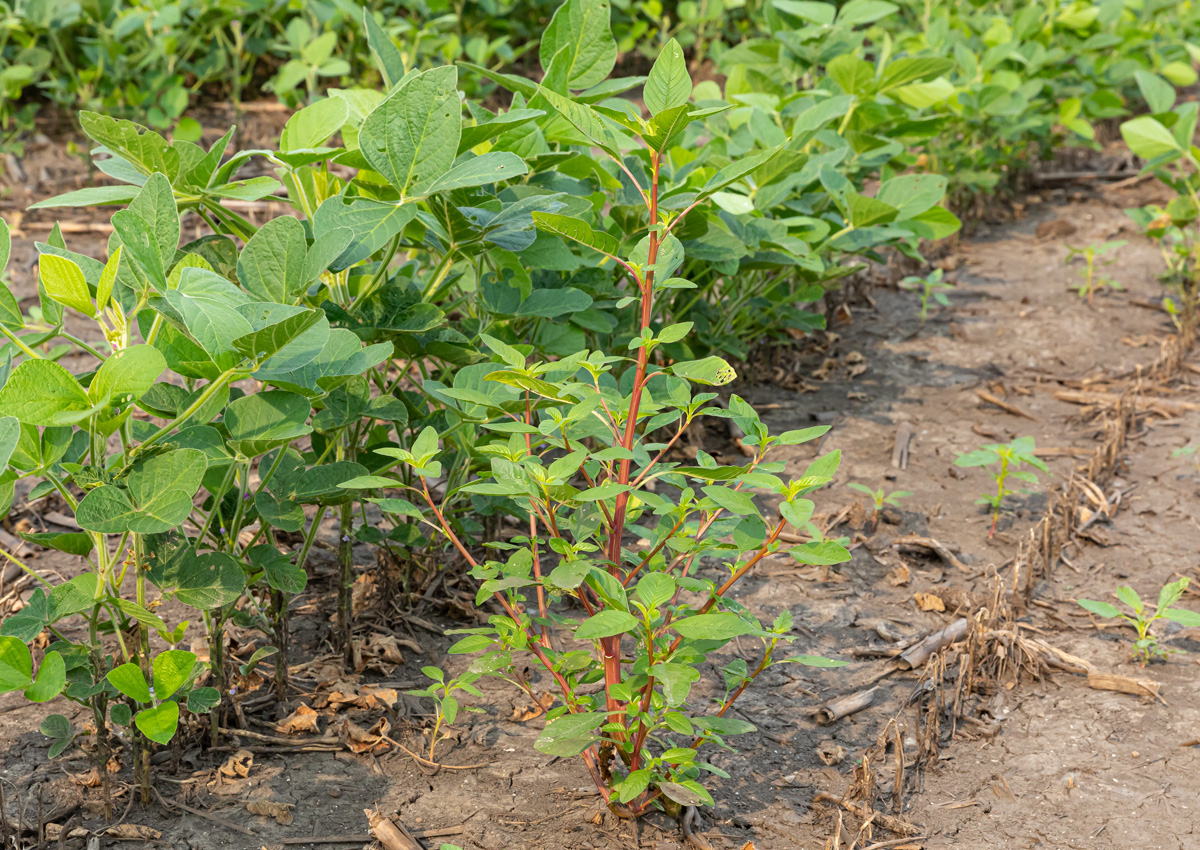
University of Illinois Study Opens Black Box of Herbicide Resistance
August 18, 2021| |
Agricultural weeds resist herbicides in one of two ways. In target-site resistance, a tiny mutation in the plant's genetic code means the chemical no longer fits in the protein it is designed to attack. In non-target-site resistance, the plant deploys a whole slew of enzymes that detoxify the chemical before it can cause harm.
Target-site resistance is easy for scientists as they know the target protein and can look directly at the genetic code to figure out the mutation responsible. However, this is not the case for non-target-site resistance. Researchers can sometimes tell what class of enzymes detoxifies the chemical but know nothing about the genes that code for those enzymes. In other words, non-target-site resistance is a black box. A University of Illinois study led by Professor Pat Tranel is the first to open that box, identifying gene regions responsible for non-target-site herbicide resistance in waterhemp.
According to Tranel, they used a genetic mapping approach with the reference genome for waterhemp, a species that can cause yield losses or more than 70 percent in corn and is resistant to seven herbicide modes of action. His team was able to narrow it down to two regions of the genome, or about 60 genes. Genetic mapping helped the team identify the two regions of the waterhemp genome that seemed to be associated with resistance. They were also able to identify which plants had each of the two regions, and which had both, allowing them to rank the importance of the gene regions.
For more details, read the news article in ACES News.
| |
You might also like:
- Researchers Identify Key Herbicide Resistance Gene in Ryegrass
- BASF Launches Herbicide Tolerant Stacked Traits Soybeans
- Pocket K No. 10: Herbicide Tolerance Technology: Glyphosate and Glufosinate
Biotech Updates is a weekly newsletter of ISAAA, a not-for-profit organization. It is distributed for free to over 22,000 subscribers worldwide to inform them about the key developments in biosciences, especially in biotechnology. Your support will help us in our mission to feed the world with knowledge. You can help by donating as little as $10.
-
See more articles:
-
News from Around the World
- The Biotech Game: A Negotiation Simulation of Science Diplomacy
- The Impact of Gene Technology in Animal Agriculture and Food Production
- New Genotyping Technology to Boost Africa's Wheat Breeding Programs
- University of Illinois Study Opens Black Box of Herbicide Resistance
- Scientists Work to Improve Crops' Photosynthesis and Yields
- Researchers Develop Technique to Map Out Regulatory Switches in Maize Genome
- Gene to Make Plants Heat-Tolerant in Rising Temperatures Gets Patent
- Philippines on the Right Path With Genome Editing Regulations
- GMO Panel Finds GM Carnation Does Not Pose Risk To Health, Environment
- EFSA GMO Panel: Cotton GHB811 as Safe as Conventional Counterpart
-
Plant
- Researchers Present Prospects for Genome Editing of Potato
- IGI Works on Net-Zero Farming and Carbon Capture
-
Read the latest: - Biotech Updates (January 21, 2026)
- Gene Editing Supplement (January 28, 2026)
- Gene Drive Supplement (February 22, 2023)
-
Subscribe to BU: - Share
- Tweet

